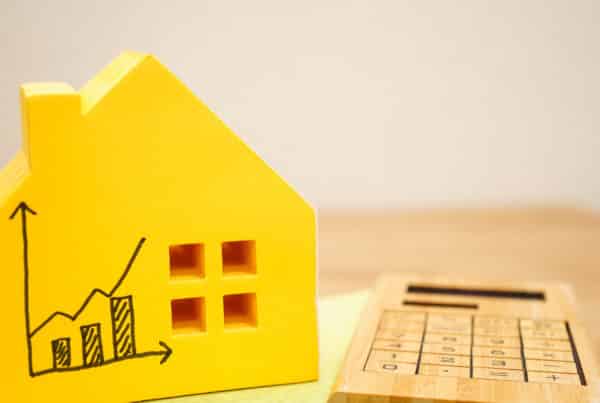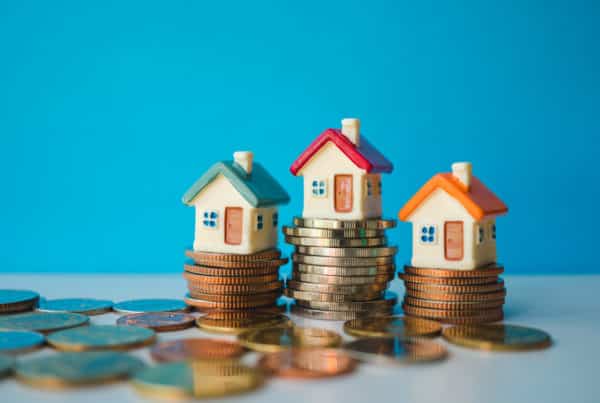Has the new most recent Intergovernmental Panel on Climate Change (IPCC) report gotten you thinking about how to fight the climate crisis? Are you stuck and don’t know where to start?
A lot of the media coverage around climate change focuses on big business, governments and, of course, banks. But one of the biggest impacts that we can have as individuals is to choose where we put our money (and how we spend it). With even the Reserve Bank of Australia (RBA) recognising the threat of climate change, lots of banks are now taking action.
Since 2018, the Australian Sustainable Finance Initiative (ASFI) has been a developing sustainability initiative in the Australian financial industry that is working to align our finance sector and follow in the footsteps of the EU’s High Level Expert Group on Sustainable Finance and the UK’s Green Finance Taskforce.
The ASFI released its first progress report on the 11th December 2019, and has confirmed in this report that it will next produce an interim report, which has formed the basis for the Sustainable Finance Roadmap. This roadmap is to ensure the financial industry supports greater social, environmental and economic outcomes in Australia – to allow the sector to transition to a more sustainable economy, consistent with global goals including the Paris Agreement on climate change, and the UN Sustainable Development Goals.
With increasing fuel prices, energy insecurity and climate concerns due to carbon emissions, there has never been a better time to start taking your finances in a greener direction. Making your money sustainable is as important as going out and planting trees. When many customers show financial institutions that they want sustainable products, providers become more inclined to create and offer them! Making our finances green is a small step together towards helping to protect the environment.
If you’re keen to start on a micro scale, you can start by changing your finances to be with institutions that are doing their part to create a more sustainable economic future. Our 3 key steps below can help you find out more:
1. Research your choice of bank
The simplest way to start making your finances sustainable and greener is by changing your bank. Any bank can claim to have green products, but having those products doesn’t always make them ethically green. There are financial institutions that offer environmentally friendly products, but then invest in the coal and mining industry. In a way it defeats the purpose of going green.
It is one thing to make individual changes to promote sustainability, but if there are no systemic changes happening at the same time, typically improvements don’t happen.
In the last couple of years, consumer awareness about where financial institutions are investing has grown, and so customers are correspondingly taking more time to consider where their money is going and what their money does.
Nowadays, you can change banks with a few clicks. So if you are unhappy with your bank’s ethical values, find one that aligns with your own and make the change. Transferring your money to a different bank might not seem like a massive impact to protect the environment, but you are actually helping stop investments to the fossil fuel industry. Between 2016-2020, the largest banks in the world contributed 3.8 trillion USD (about 5.2 trillion AUD) into fossil fuels, said the 2021 Banking on Climate Chaos report. If enough people begin choosing their banks ethically, there may be a chance to lower how much money goes to these climate damaging industries.
2. Consider moving your super
Every working Australian has a super, but once you get it you typically don’t ever look at it again. Why would you? A superannuation fund is essentially your retirement fund, why bother with it until you’re much older?
The money that is put away each year from your salary, is then invested in different ways, based on your super provider’s investment preferences. However, some supers invest in industries that make the climate crisis worse, which obviously isn’t ideal. It is therefore important to go into your super and select your investment preferences, especially if you want your money to go into sustainable investments. There are several super funds that are green investments exclusive.
Recently the government introduced the YourSuper comparison tool that allows you to compare supers to meet your ethical needs.
3. Invest in cars and properties created for a sustainable future
If you are considering buying a home in the future and are also worried about the climate crisis, consider buying a green home. Typically a green home has a 7-star Nationwide House Energy Rating Scheme or higher. These types of houses are built in a way that doesn’t require high energy usage and have low carbon emissions. With more options available than ever to reduce your carbon footprint, add value to your home and create a more sustainable living environment for you and your family, why wait?
Additionally, constructing or renovating a green home doesn’t only benefit the environment – living in a green home can improve our mental health, sense of home satisfaction and improve our quality of physical health!
You can also look at your car of choice: Electric vehicles (EVs) have grown in popularity in Australia. Despite many parts of Australia being pulled back into COVID-19-related lockdowns, demand for new vehicles continued to grow in July by 16.1 per cent month-on-month, according to the latest figures from the Federal Chamber of Automotive Industries (FCAI). Data from FCAI found that a total of 84,161 vehicles were sold in July 2021, compared to 72,505 at the same time last year.
One way of reducing the amount of emissions produced from driving is to own an eco-friendly (green) car. Green cars offer an alternative to traditional petrol-consuming vehicles that rely solely on fossil fuels to run. Green cars produce low or no emissions, helping to reduce greenhouse gas emissions. There is an ever-expanding range of green cars, making them an increasingly viable option. Depending on the state of territory you live in, you may also receive special discounts for owning an EV.
Disclaimer: This article is not intended as legal, financial or investment advice and should not be construed or relied on as such. Before making any commitment of a legal or financial nature you should seek advice from a qualified and registered Australian legal practitioner or financial or investment advisor.





